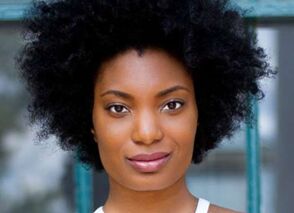为什么我不喜欢别人叫我‘美女’
|
"Pretty" has always been a conditional adjective for me. My entire life I've heard, "You're pretty for a dark-skinned girl." "You'd be prettier if . . ." Growing up, I didn't want to play outside too long out of fear of getting darker. I'd wish I had skin tones like my mom and dad, who are both light skinned. I'd hear whispers about whether I was my parents' child because there was no way I, a dark-skinned little girl, could have picked up genes from my dark-skinned grandparents. Not only was my perception of pretty shaped by how my peers, family members, and society saw my deep brown skin, but my hair was always a topic of a conversation, too. My hair was my crown and glory, at least that is what I was taught. Every week, I spent hours in the hair salon getting my hair chemically straightened.
I didn't feel pretty unless my hair was perfect. Throughout my teenage and college years, I spent hours in front of the mirror, straightening my hair until it was bone straight. I was known for my "pretty" hair. I would often have people ask what I was mixed with because normal black girls couldn't have "good hair," especially not those with dark skin. Having to always have my hair laid was exhausting. I didn't feel pretty unless my hair was perfect. My hair was my crown and glory, so that was the only way the world would see me as beautiful, right? Shortly after I graduated from college, I went natural. Well, sort of. I grew my relaxer out bit by bit, cutting off the ends every six to eight weeks. To most people, my hair was still pretty, but I was again spending hours manipulating it to make sure it fit into the mold of the 3C hair type most find beautiful. One day, I cut it all off. I felt liberated. As a woman whose beauty was defined by the length and texture of her hair, without knowing it, I was redefining my "pretty." |









